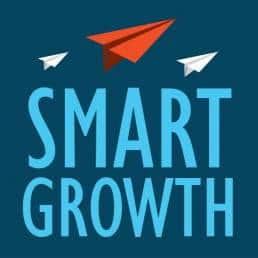



Last week, I discussed how influencer marketing can come to the aid of small and medium enterprises (SMEs). Influencer marketing continues to evolve as a dynamic strategy, adapting to changing consumer behaviour and technological advancements. For SMEs, staying updated with the trends in influencer marketing is crucial for harnessing its potential to drive rapid growth.
Let’s explore the new trends shaping influencer marketing and how they can be leveraged.
Micro-influencers and niche marketing
Micro-influencers, who are individuals with smaller but highly engaged followings within specific niches, have gained popularity in recent months. You can capitalise on the trust and authenticity associated with them to target niche and micro-markets effectively.
By collaborating with micro-influencers relevant to your industry, you can reach a highly targeted audience that can provide better engagement and more business.
Authenticity and transparency
Consumers are increasingly demanding authenticity and transparency from brands and influencers alike. Your company can build trust and credibility by working with influencers who align with your values and genuinely believe in your mission and offerings.
Authentic content and transparent collaborations resonate with potential customers, leading to stronger connections and driving faster revenue growth.
Video and live-streaming
Video content and live-streaming have become dominant forces in influencer marketing. With platforms like YouTube, TikTok, and Instagram Live gaining popularity, you can leverage video-centric influencer campaigns to engage audiences more effectively.
Collaborate with influencers who excel in video-content creation and live-streaming to tell your brand stories in a interactive manner.
Long-term partnerships
Many SME owners are increasingly shifting from short-term collaborations to long-term partnerships with influencers. Building ongoing relationships allows you to establish a consistent brand presence, deepen engagement, and generate recurring benefits.

You can benefit from the influencers' loyalty, extended reach, and growing familiarity with your brand, leading to accelerated growth and customer loyalty.
User-generated content
User-generated content has become significant in influencer marketing. Encouraging influencers and customers to create and share content related to the brand helps businesses amplify their reach and increase social proof.
Such content not only drives engagement but also facilitates a sense of community and authenticity around the brand. You can incentivise and empower influencers and customers to generate such content and propel growth initiatives.
Data-driven influencer selection
The availability of data analytics and influencer-marketing platforms enables you to make data-driven decisions when selecting influencers.
Such tools provide audience demographics, engagement metrics, and return on investment (ROI) analysis. You can identify the most suitable influencers for your target market based on these tools. This will ensure maximum impact and help you allocate resources effectively.
Emerging platforms and formats
Influencer marketing trends are closely linked to emerging social media platforms and formats. You should stay informed about new platforms such as Clubhouse or emerging formats like augmented reality (AR) or virtual reality (VR), and explore opportunities to collaborate in these spaces. This will help you showcase innovation and capture early adopters’ attention, leading to revenue growth.
As these trends evolve, you must adapt to them and leverage them for your business. Here are some examples of modern influencer marketing campaigns in the B2B sector:
Cisco partnered with Neil Patel, a renowned digital marketing expert and influencer, and used webinars, blog collaborations, and social media content to drive business growth.
Patel shared insights on leveraging technology for business growth, with a focus on Cisco's solutions. This collaboration allowed Cisco to tap into Patel’s audience, resulting in increased access.
Slack, a leading collaboration software provider, joined hands with The Work Talk Show, a popular podcast focused on workplace productivity, to showcase interviews of Slack's executives on topics related to remote work, productivity, and team collaboration.
This allowed Slack to publicise its benefits and thought leadership with greater ease than would otherwise be possible.
Salesforce, a cloud-based software company, partnered with Ann Handley, a renowned marketing author and speaker, to create educational content for blog posts and webinars. They focused on marketing automation, customer experience, and sales enablement, with Salesforce as a featured solution.
Salesforce was able to position itself as a leader in customer relationship management while leveraging Handley's influence to educate and engage with the audience.
One more example is that of Adobe and Jason Falls, a digital marketing strategist and influencer. Through webinars and thought leadership content, Falls shared insights on content marketing, social media, and data-driven strategies.
By doing so, Adobe established itself as a trusted adviser in the digital marketing space, driving brand affinity and lead generation.
SMEs must find relevant influencers and plan for cost-effective marketing.
Discover the latest Business News, Sensex, and Nifty updates. Obtain Personal Finance insights, tax queries, and expert opinions on Moneycontrol or download the Moneycontrol App to stay updated!
Find the best of Al News in one place, specially curated for you every weekend.
Stay on top of the latest tech trends and biggest startup news.